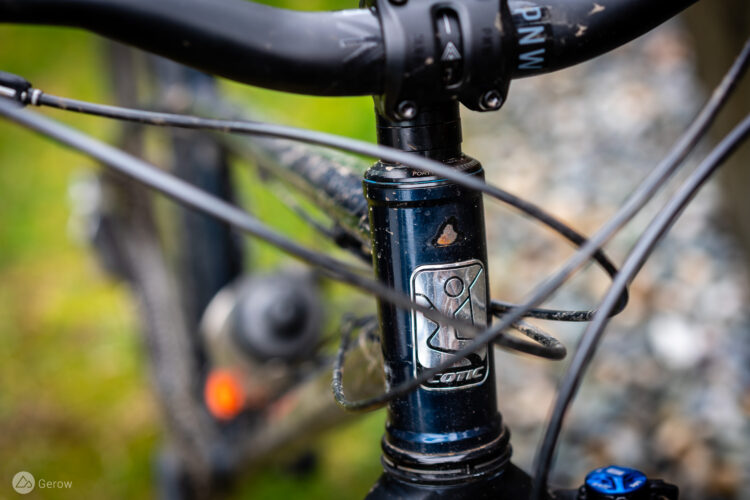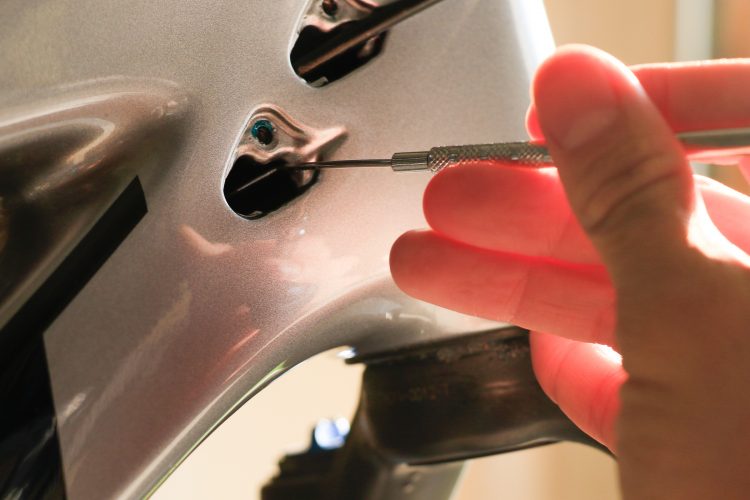
Of the nine members of our riding crew, none earn their living as mechanics. Never has this been more obvious than during a recent bike trip, with the three of us considered the “bike mechanics” in the bunch kneeling around a bike at our campsite playing “find the creak.”
“Sand in the saddle screws?”
“Bottom bracket, for sure.”
Ears closer to bike, eyes closed, focused on sound alone — this was serious business.
“Is it coming from the forward pivot?”
The offending creak was indeed emanating from an incompletely tightened pivot bolt, which our companion, and “2nd best bike mechanic,” had re-installed — himself.
Indeed, we are bike mechanics, much like Brad Pitt and his crew from a Quentin Tarantino World War II themed-flick were Italian: “1st best Italian,” “2nd best Italian,” and “3rd best Italian.” The problem, of course? As declared by “3rd best,” none of them spoke Italian. “That’s why,” Pitt pointed out, he was “3rd best Italian.”
We three kneeling in the dirt were first best bike mechanic, second best bike mechanic, and third best bike mechanic. The problem? None of us are bike mechanics. Behold the home bike mechanic in all our glory.
By my count there are approximately 20-40 hex bolts on a full suspension mountain bike. These may hold anything from your pivots to your lock-on grips on board, and/or together. All of which are important items that need to stay on your bike during rides. I have a tool for every single one of them. In the event you were unaware: tools make us all pros at removal, until we call in the chain whip.
It is typically the putting it back together where the adventure begins. Upon each opening of my bike toolbox I am reminded of prior adventures in re-assembly. Where did all of these “extra” bolts, washers, and nuts come from? And why are they no-longer on my bike? Looking at all these “spare” parts that were apparently and hopefully optional I can’t help but wonder: is my bike safe?
The multitude of YouTube channels and videos devoted to working on your bike at home, often sans actual tools, are not being created in a vacuum. Demand for content is there. I’m not alone here. The video creators know you are installing and “de-installing” things in your garage (or living room — though my wife is not a big fan of that), as self-professed “home mechanics.” And they know you’re not spending the cash on that headset press, so they’ll show you how to do it with $9 in parts from Lowes.
In the early days I never considered working on my own bike. This could be a result of the fact that bikes are far easier to work on now than they were in the early 90s. Who wanted to tackle a threaded headset and stem? How the heck did that cam mechanism work? Cantilever brakes could drive a person to insanity, but they were nothing compared to front derailleurs. Those were the stuff of night sweats.

I only began my descent into “home mechanic 101” on the new bike after a series of misadventures at the shop. It could be I got tired of shops offering that they “can’t get to that for” weeks or even months because really — they just don’t want to work on it. I understood the sentiment. I didn’t want to work on it either. I also tired of paying top dollar for shoddy service at the local shop. Perhaps this next scenario sounds familiar?
Broken spoke? I’ve had many.
That is not a job even I, a self-proclaimed amateur-master-2nd-best-bike mechanic, feel comfortable repairing. Until I build up the courage to start wheel building (which is never going to happen, as I imagine major hospital bills would follow), this meant the wheel was headed to a local shop. Yet, two months later the mechanic at another shop asked me, “did you replace a spoke on this wheel?”
How did he know that? I hadn’t mentioned it. The problem the bike was at that shop for had nothing to do with the wheel. The new spoke was the same color and variety as all the others.
“I had my previous shop do it,” I answered.
“Did you adjust any of the spokes’ tension yourself?” He asked.
“Adjust what?”
“Tension?” Absolutely not. I don’t have a clue what tool I can create at a Lowes with PVC and washers to do such a thing.
“Whoever did this over tightened this spoke and it pulled a portion of the wheel up.” the professional tells me. He was also complimentary of the custom build I had chosen on the wheel, which was nice.
But what had I paid the other shop for? Money not-well-spent. I landed upon the fateful conclusion we all ultimately reach: “I can probably do that myself.” Armed with a hex wrench and an astonishing array of YouTube videos, I became a home mechanic.
This journey to the purchase of Park tools merchandise with extremely specific purposes is, in many ways, maddening. For all those who have fished a cable through the interior of a frame without a magnet tool, it represents a very real journey into the river of darkness. Some of the more common expressions from those on this journey into home mechanic include:
“So, this won’t work on my bottom bracket?”
“Its 3mm! You have to be kidding me! It won’t work on this freehub?”
“Wait. Why did they make it 3mm shorter than all the others?”
“Is there a way to fix this really expensive crank arm that you can’t find anywhere right now because they changed the spider configuration so my narrow wide chain ring won’t work on the new ones I cross threaded a pedal onto?”
“This one won’t work on my bottom bracket either?”
“So it’s SRAM, but it doesn’t use XD driver? How much is a new freehub? How much is a new cassette? Whoa. Damn.”
“So that spindle is 29mm, that is 30, and that one is what? So, this bottom bracket won’t work?”
“Please, for the love of god, just tell me which headset I need.”
“Where the hell do all these bubbles keep coming from? I think there’s more air than oil in there.”
“Can I put that chain link back in? I have the old pin.”
“How do I clean off the contamination?”
“But this derailleur is 12-speed, and that’s only 2-more teeth.”
“What kind of f-ing bottom bracket is this?”

“Never leave the boat.” Still, the tool collection continues growing. I have circlips and syringes of grease and oil. I’m like a pretty serious fork servicer guy now. I’ve come a long way from the time I attempted to install a Press Fit headset into a frame using clamps, 2 x 4s, and a hammer on my supervisor’s desk at the office. I thought he’d gone home for the day. The video made it look easy.
We all have our limits though. My home mechanic adventure nearly ended forever in an ill-fated brake bleed. I’ve done plenty of brake bleeds, most of them successfully. How hard could a new brake installation be?
Yet, bleed after bleed, I was getting nowhere. I followed the instructions from the video. I had even watched it carefully. Bleed after bleed after bleed. Video after video. I was forced to embark on the walk-of-shame: sheepishly, I hauled the bike over to a local shop.
Standing there, beaten, begging, the ultimate loser, getting the old eye-over from the shop mechanic. The horror.
At the shop though — Great news: we learned that the new brake lever was defective. I ran the bike home, threw it on the stand, re-installed the former bent, yet somewhat reliable lever, bled it, and had rear brakes again. Confidence restored! Maybe I wasn’t so bad at this home mechanic stuff after all.
Home wrenching $6K bikes may seem to be pure madness, but for all the problems we cause or make worse “fixing” bikes, accumulating “spare” parts, setting crown races with PVC pipe and hammers, and cutting steer tubes with hacksaws, there is an unparalleled satisfaction in getting the job done yourself. Our group’s “8th best mechanic” just changed his own Centerlock brake rotors and the resulting dopamine rush has him eying a new set of hex wrenches. And when it hits the fan, the good mechanics are still out there, and they get it — they understand that setting a star nut with washers, a socket, and a hammer seemed like a good idea at the time, too.
A riding buddy of mine, (“9th best mechanic”) still relatively new to mountain biking, recently “fixed” his novice friend’s bike for him prior to a ride. Things seemed great until the rear wheel fell off mid-trail. It was incredibly satisfying; the legacy carries on — a 4mm Allen key is a terrible thing to let go to waste. We can fix it.









